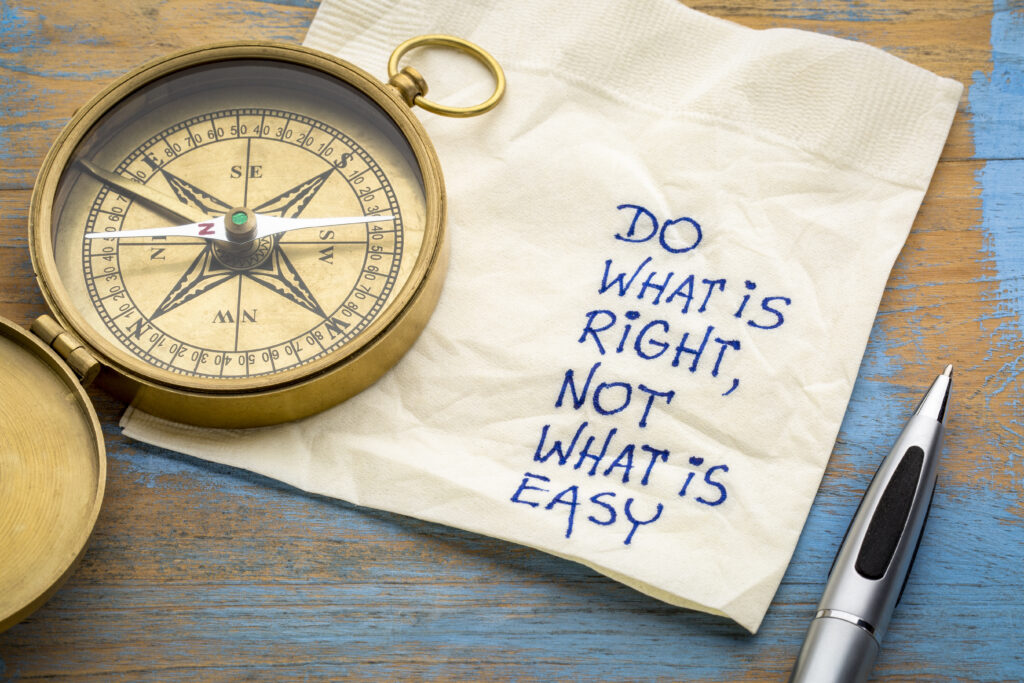Getting the Most from Your Visits with an Addiction Psychiatrist

There’s a common misconception regarding addiction recovery that treatment consists exclusively of meetings with a therapist. While one-on-one or group therapy will make up the bulk of your time in rehab, you’re also sure to meet with a psychiatrist.
If you’ve never met with a psychiatrist before or aren’t sure what they do, we’ve got you covered. Here you’ll find answers to the most common questions about addiction psychiatrists.
Is a psychiatrist different from a therapist?
While psychiatry and therapy are overlapping fields, often meeting with the same clients, they have distinct training, expertise and scope of practice. A therapist generally has a bachelor’s or a master’s degree and receives licensure through your state in order to assist individuals in identifying and solving personal problems.
A psychiatrist, on the other hand, has completed a doctorate program in medical health and received state licensure, but specializes in mental health concerns rather than exclusively physical conditions. According to the American Psychological Association, a psychiatrist is able to treat both the emotional and physical components of psychological issues and has the unique ability to prescribe medications.
Psychiatrists are often part of a comprehensive treatment team when a person enters a substance use treatment program. While you won’t need to meet with your psychiatrist as often as your therapist, the services of a psychiatrist could make as much of an impact.
What happens in an appointment with an addictions psychiatrist?
The format of your meeting may depend on the setting in which you meet with a psychiatrist. Often, inpatient rehab programs will have psychiatrists on staff, so your appointment will be in-house during your stay. It’s not uncommon to meet with a psychiatrist in an office setting either. This could be a first time visit or a regular check-up.
At your first appointment, regardless of where it takes place, you’re likely to:
- Review your mental health history
- Discuss any current or previous diagnoses
- Share symptoms
- Talk about your struggles with addiction and substances used
- Establish some goals for your care
At this point, your psychiatrist may deem it appropriate to prescribe medications. Meeting with your doctor doesn’t guarantee you’ll receive a diagnosis and medication, though. It’s probable that your psychiatrist will recommend other treatment modalities first, like supplements, holistic modalities or a more intensive rehab program.
In follow up appointments, you’ll review medications that have been prescribed, discuss potential unfavorable side effects, consider changing a dosage and share an update on your day-to-day functioning with mental illness.
What are the benefits of meeting with a psychiatrist?
There’s no sugar-coating it— recovery is a challenge. You don’t have to walk the road alone, though. When you have the aid of a psychiatrist on your addiction recovery journey, here are some perks you can look forward to.
You can take multiple medications without anxiety
Combining drugs can have dangerous or even lethal results. One of the pros of having a psychiatrist on your care team is that he or she will be aware of the various medications you may be taking for co-occurring mental or physical disorders, and will alert you if mixing certain substances could have hazardous effects.
You’ll have an extra support person
Adding a psychiatrist to your care team means that you’ll have an added layer of support when the pursuit of sobriety feels overwhelming. Just like your therapist, counselor or social worker, your psychiatrist can help you work through distress and find creative solutions to prioritize your recovery.
You’ll have help with a dual-diagnosis
When you have more than one mental health condition (often called comorbidity), you’ll have expert intervention from someone who has seen it all before and can share a wealth of knowledge. People frequently face two diagnoses simultaneously, and a psychiatrist can clarify symptoms and find strategies that heal both.
You won’t have to worry about doing it right the first time
While some care teams find the key to success right off the bat, the reality is that recovery is a long battle and it can be discouraging to feel like you’re waiting for changes to happen. When you get help managing medications for substance use and mental health, some of the weight is taken off your shoulders. Moreover, you can switch medications down the road if one isn’t working for you.
You’ll alleviate painful symptoms
When you work with a psychiatrist, you’ll have access to all the benefits of medication-assisted treatment (MAT). Different drugs for MAT can help reduce cravings, manage painful symptoms and bear through the brunt of recovery. These early days of sobriety can be hard enough to result in relapse, so MAT can make a massive impact on your life-long success.
Where can I find a psychiatrist?
Get the help you need now with Pyramid Healthcare. With programs for addiction recovery and mental illness, you’re sure to find treatment that fits your needs. Get connected today and call now.
There’s a common misconception regarding addiction recovery that treatment consists exclusively of meetings with a therapist. While one-on-one or group therapy will make up the bulk of your time in rehab, you’re also sure to meet with a psychiatrist.
If you’ve never met with a psychiatrist before or aren’t sure what they do, we’ve got you covered. Here you’ll find answers to the most common questions about addiction psychiatrists.
Is a psychiatrist different from a therapist?
While psychiatry and therapy are overlapping fields, often meeting with the same clients, they have distinct training, expertise and scope of practice. A therapist generally has a bachelor’s or a master’s degree and receives licensure through your state in order to assist individuals in identifying and solving personal problems.
A psychiatrist, on the other hand, has completed a doctorate program in medical health and received state licensure, but specializes in mental health concerns rather than exclusively physical conditions. According to the American Psychological Association, a psychiatrist is able to treat both the emotional and physical components of psychological issues and has the unique ability to prescribe medications.
Psychiatrists are often part of a comprehensive treatment team when a person enters a substance use treatment program. While you won’t need to meet with your psychiatrist as often as your therapist, the services of a psychiatrist could make as much of an impact.
What happens in an appointment with an addictions psychiatrist?
The format of your meeting may depend on the setting in which you meet with a psychiatrist. Often, inpatient rehab programs will have psychiatrists on staff, so your appointment will be in-house during your stay. It’s not uncommon to meet with a psychiatrist in an office setting either. This could be a first time visit or a regular check-up.
At your first appointment, regardless of where it takes place, you’re likely to:
- Review your mental health history
- Discuss any current or previous diagnoses
- Share symptoms
- Talk about your struggles with addiction and substances used
- Establish some goals for your care
At this point, your psychiatrist may deem it appropriate to prescribe medications. Meeting with your doctor doesn’t guarantee you’ll receive a diagnosis and medication, though. It’s probable that your psychiatrist will recommend other treatment modalities first, like supplements, holistic modalities or a more intensive rehab program.
In follow up appointments, you’ll review medications that have been prescribed, discuss potential unfavorable side effects, consider changing a dosage and share an update on your day-to-day functioning with mental illness.
What are the benefits of meeting with a psychiatrist?
There’s no sugar-coating it— recovery is a challenge. You don’t have to walk the road alone, though. When you have the aid of a psychiatrist on your addiction recovery journey, here are some perks you can look forward to.
You can take multiple medications without anxiety
Combining drugs can have dangerous or even lethal results. One of the pros of having a psychiatrist on your care team is that he or she will be aware of the various medications you may be taking for co-occurring mental or physical disorders, and will alert you if mixing certain substances could have hazardous effects.
You’ll have an extra support person
Adding a psychiatrist to your care team means that you’ll have an added layer of support when the pursuit of sobriety feels overwhelming. Just like your therapist, counselor or social worker, your psychiatrist can help you work through distress and find creative solutions to prioritize your recovery.
You’ll have help with a dual-diagnosis
When you have more than one mental health condition (often called comorbidity), you’ll have expert intervention from someone who has seen it all before and can share a wealth of knowledge. People frequently face two diagnoses simultaneously, and a psychiatrist can clarify symptoms and find strategies that heal both.
You won’t have to worry about doing it right the first time
While some care teams find the key to success right off the bat, the reality is that recovery is a long battle and it can be discouraging to feel like you’re waiting for changes to happen. When you get help managing medications for substance use and mental health, some of the weight is taken off your shoulders. Moreover, you can switch medications down the road if one isn’t working for you.
You’ll alleviate painful symptoms
When you work with a psychiatrist, you’ll have access to all the benefits of medication-assisted treatment (MAT). Different drugs for MAT can help reduce cravings, manage painful symptoms and bear through the brunt of recovery. These early days of sobriety can be hard enough to result in relapse, so MAT can make a massive impact on your life-long success.
Where can I find a psychiatrist?
Get the help you need now with Pyramid Healthcare. With programs for addiction recovery and mental illness, you’re sure to find treatment that fits your needs. Get connected today and call now.







